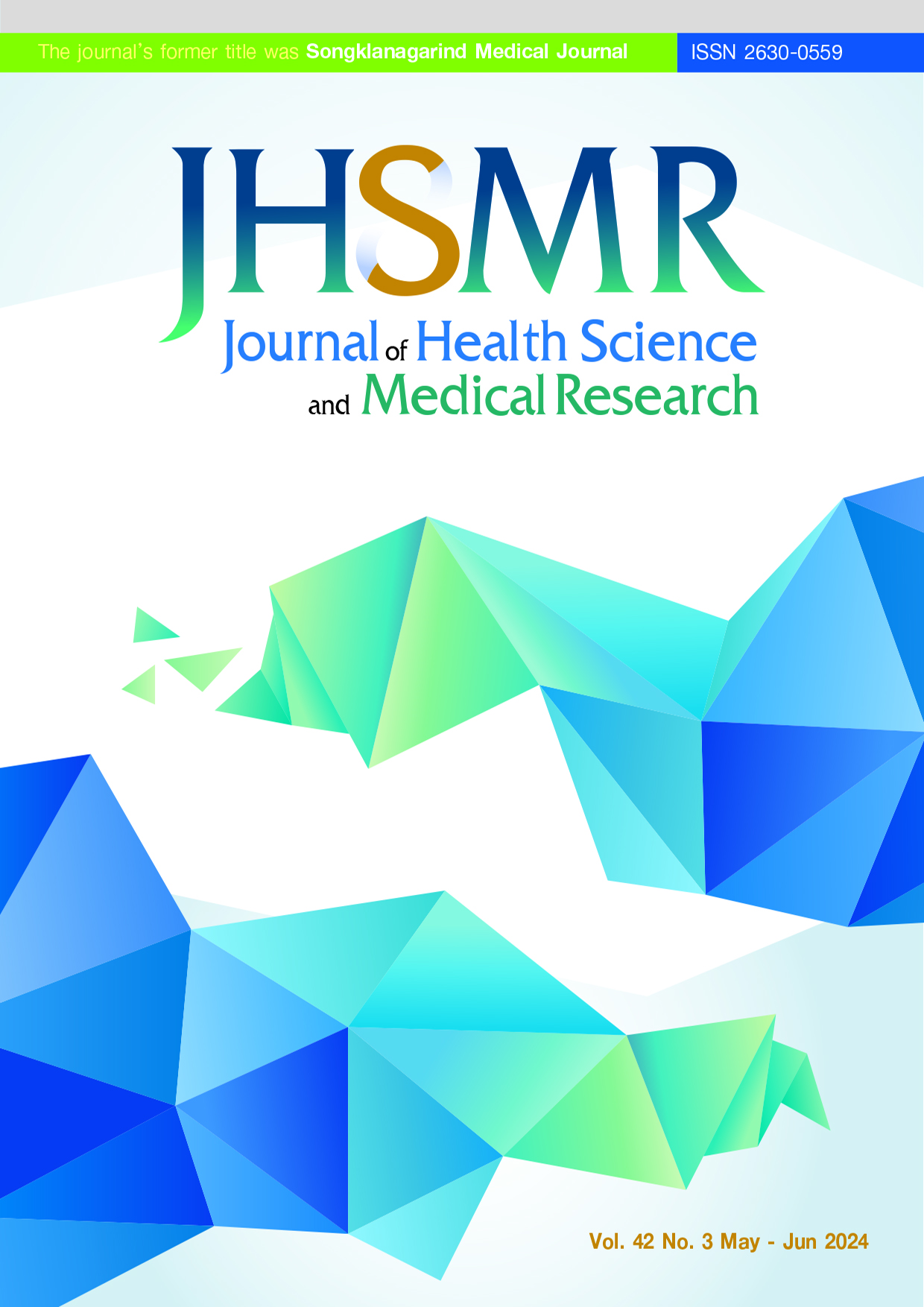Factors Associated with COVID-19 Vaccine Hesitancy in Georgia
DOI:
https://doi.org/10.31584/jhsmr.20241023Keywords:
COVID-19, vaccination, vaccine acceptance, vaccine hesitancy, vaccine effectiveness, vaccine safetyAbstract
Objective: The prevention of Coronavirus Disease-19 (COVID-19) is most effectively achieved through vaccination. However, the issue of vaccine hesitancy and distrust is a challenge that is experienced globally. The objective of this research is to investigate the distrust of the COVID-19 vaccine and the barriers that prevent individuals from deciding to be vaccinated.
Material and Methods: This study utilized a qualitative research design, specifically in-depth interviews, to obtain data from respondents that have not yet received any COVID-19 vaccine.
Results: Three main categories relating to vaccination difficulties were identified: lack of confidence, complacency, and disadvantage. The lack of confidence pertains to concerns regarding the effectiveness and safety of the vaccine. Complacency involves the perception that the virus is not harmful and does not pose a significant threat. Lastly, disadvantage encompasses the problem of the availability of immunization services, time, distance, and similar factors.
Conclusion: This research evaluated the effectiveness, safety, necessity, and availability of the COVID-19 vaccine under these categories. The findings of this study suggest that people’s decision to vaccinate is influenced by their distrust of the vaccine’s effectiveness and safety as well as their skepticism regarding the actual need for vaccination. These individuals are not entirely against vaccination and partially recognize its benefits. However, they are uncertain about the outcome of immunization and harbor doubts about the vaccine’s safety; particularly since it was developed in a relatively short period of time. Additionally, the possibility of side effects and adverse health effects were also a significant cause for concern.
References
Gianino MM, Nurchis MC, Politano G, Rousset S, Damiani G. evaluation of the strategies to control COVID-19 pandemic in four European countries. Front Public Healt 2021;9:700811.
Verulava T, Shengelia K, Makharashvili G. Challenges of distance learning at universities during the COVID-19 pandemic in Georgia. J Learn Dev 2023;10:75-90.
Centers for Disease Control and Prevention. COVID-19 vaccinations in the United States [homepage on the Internat] Atlanta: CDC; 2022 [cited 2023 Apr 7]. Available from: https://www.cdc.gov/coronavirus/2019-ncov/vaccines/index.html
Comission E. A united front to beat COVID-19 [homepage on the internet] Brussels; 2021 [cited 2021 March 5]. Available from: https://ec.europa.eu/info/sites/info/files/communicationunited-front-beat-covid-19_en.pdf
National Statistics Office of Georgia. Real-time monitoring survey on the impact of the COVID-19 on the well-being of families and children [homepage on the internet] 2021 [cited 2023 April 7]. Available from: https://www.geostat.ge/media/44210/Real-time-Monitoring-Survey-on-impact-ofthe-COVID-19-on-the-well-being-of-families-and-children---II-wave.pdf
World Health Organization. Ten threats to global health in 2019 [homepage on the Internet]. Geneva: WHO; 2019 [cited 2023 April 7]. Available from: https://www.who.int/news-room/spotlight/ten-threats-to-global-health-in-2019.
Nossier AS. Vaccine hesitancy: the greatest threat to COVID-19 vaccination programs. J Egypt Public Health Assoc 2021;18.
Sripaew S, Wichaidit W, Angsuwaree C, Thitasomkun C, Lailamad I, Kliangchuai N, et al. Comparison of hand hygiene behaviors among primary care unit outpatients and visitors before and after installation of behavioral nudges during the COVID-19 situation: a quasi-experimental study. J Health Sci Med 2023;41:e2022888.
Çevik HS, Baykan R, Peker AGC, Tekiner S. Attitudes of family medicine residents in Ankara towards COVID-19 vaccines administered in Turkey: a descriptive, cross-sectional study. Fam Med Prim Care Rev 2022;24:156-61.
Shen C, Dubey V. Addressing vaccine hesitancy. Can Fam Physician 2019;65:175-81.
Tan M, Straughan PT, Cheong G. Information trust and COVID-19 vaccine hesitancy amongst middle-aged. Soc Sci Med 2022;296:114767.
Robinson E, Jones A, Daly M. International estimates of intended uptake and refusal of COVID-19 vaccines: a rapid systematic review and meta-analysis of large nationally representative samples. MedRxiv 2020.
Yaqub O, Castle-Clarke S, Sevdalis N, Chataway J. Attitudes to vaccination: a critical review. Soc Sci Med 2014;112:1–11.
d’Onofrio A, Manfredi P. Vaccine demand driven by vaccine side effects: dynamic implications for SIR diseases. J Theor Biol 2010;264:237–52.
Kraśnicka J, Krajewska-Kułak E, Klimaszewska K, Cybulski M, Guzowski A, Baranowska A, et al. Child vaccination at the outpatient clinic of the pro medica center in bialystok, Poland, in the years 2013–2016. Fam Med Prim Care Rev 2018;20:341–5.
Hou Z, Tong Y, Du F, Lu L, Zhao S, Yu K, et al. Assessing COVID-19 vaccine hesitancy, confidence, and public engagement: a global social listening study. J Med Internet Res 2021;23:e27632.
Rzymski P, Borkowski L, Drąg M, Flisiak R, Jemielity J, Krajewski J, et al. The strategies to support the COVID-19 vaccination with evidence-based communication and tackling misinformation. Vaccine 2021;9:109.
Islam MS, Kamal AH, Kabir A, Southern DL, Khan SH, Hasan SM, et al. COVID-19 vaccine rumors and conspiracy theories: the need for cognitive inoculation against misinformation to improve vaccine adherence. PloS one 2021;16:e0251605.
Al-Mohaithef M, Padhi BK. Determinants of COVID-19 vaccine acceptance in Saudi Arabia: a web-based national survey. J Multidiscip Healthc 2020;13:1657–63.
Chor JSY, Pada SK, Stephenson I, Goggins WB, Tambyah PA, Clarke TW, et al. Seasonal influenza vaccination predicts pandemic H1N1 vaccination uptake among healthcare workers in three countries. Vaccine 2011;29:7364–9.
Caserotti M, Girardi P, Rubaltelli E, Tasso A, Lotto L, Gavaruzzi T. Associations of COVID-19 risk perception with vaccine hesitancy over time for Italian residents. Soc Sci Med 2021;272:113688.
Danabal KGM, Magesh SS, Saravanan S, Gopichandran V. Attitude towards COVID 19 vaccines and vaccine hesitancy in urban and rural communities in Tamil Nadu, India – a community based survey. BMC Health Serv Res 2021;21:994.
Villarreal-Garza C, Vaca-Cartagena BF, Becerril-Gaitan A, Ferrigno AS, Mesa-Chavez F, Platas A, et al. Attitudes and factors associated with COVID-19 vaccine hesitancy among patients with breast cancer. JAMA Oncol 2021;7:1242–4.
Agley J, Xiao Y. Misinformation about COVID-19: evidence for differential latent profiles and a strong association with trust in science. BMC Public Health 2021;21:89.
Czerwińska E, Nittner-Marszalska M, Mastalerz-Migas A, Szenborn L. Prophylactic vaccinations management in patients undergoing allergen immunotherapy – a review. Fam Med Prim Care Rev 2022;24:163-7.
Downloads
Published
How to Cite
Issue
Section
License

This work is licensed under a Creative Commons Attribution-NonCommercial-NoDerivatives 4.0 International License.
























